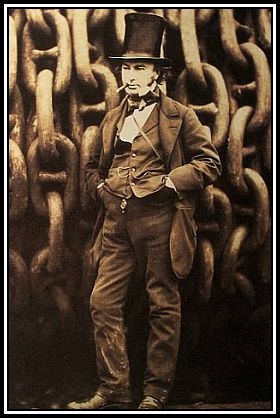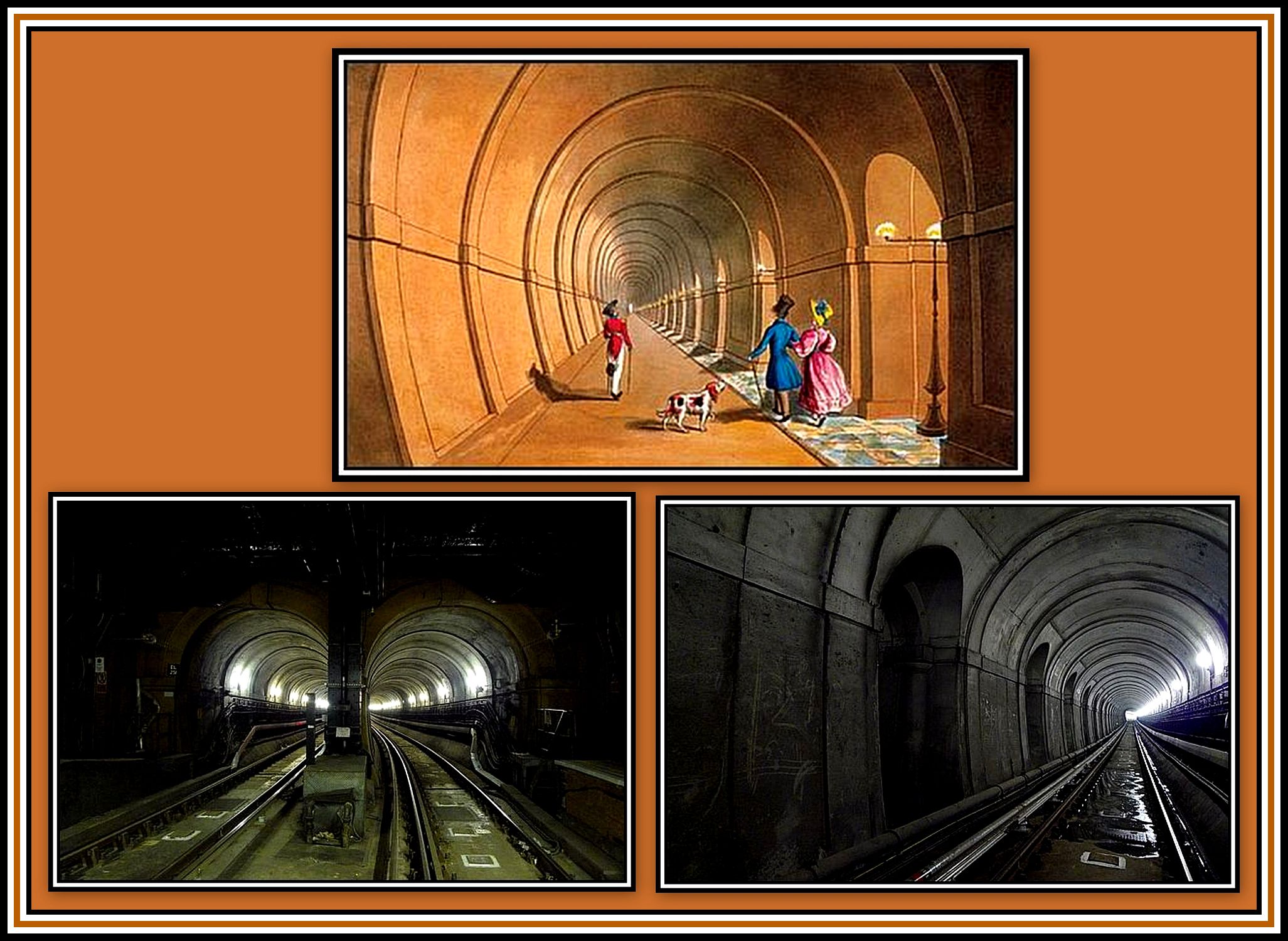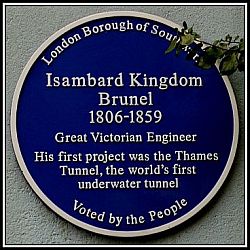ISAMBARD KINGDOM BRUNEL
Isambard Kingdom Brunel (1806-1859) was a Mechanical and Civil Engineer of great note and built the Great Western Railway, a number of steamships, dockyards, bridges, viaducts and tunnels. Brunel was, to say the least, innovative, and had a marked impact on transport and modern engineering.
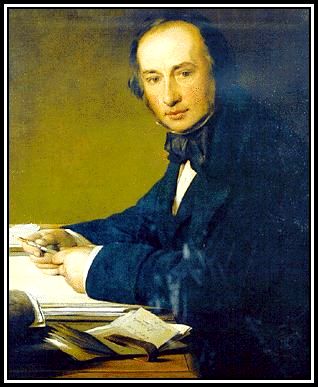
Isambard Kingdom Brunel at his desk
-oOo-
PAGE ONE: THE EARLY YEARS
Isambard Kingdom Brunel was born in Portsmouth on the 9th April, 1806 to Sir Marc Isambard (1769-1849) and Lady Sophia Brunel (1775-1855).
 (Left) Sir Marc Isambard, 1812, by James Northcote (1746-1831)
(Left) Sir Marc Isambard, 1812, by James Northcote (1746-1831)
(Right) ibed, 1835, by Samuel Drummond (1766-1844)
It was his wish to follow in his father’s footsteps as an engineer and so he was sent to France for his education where he attended the Lycée Henri-Quartri and the University of Caen (Université de Caen Basse-Normandie).
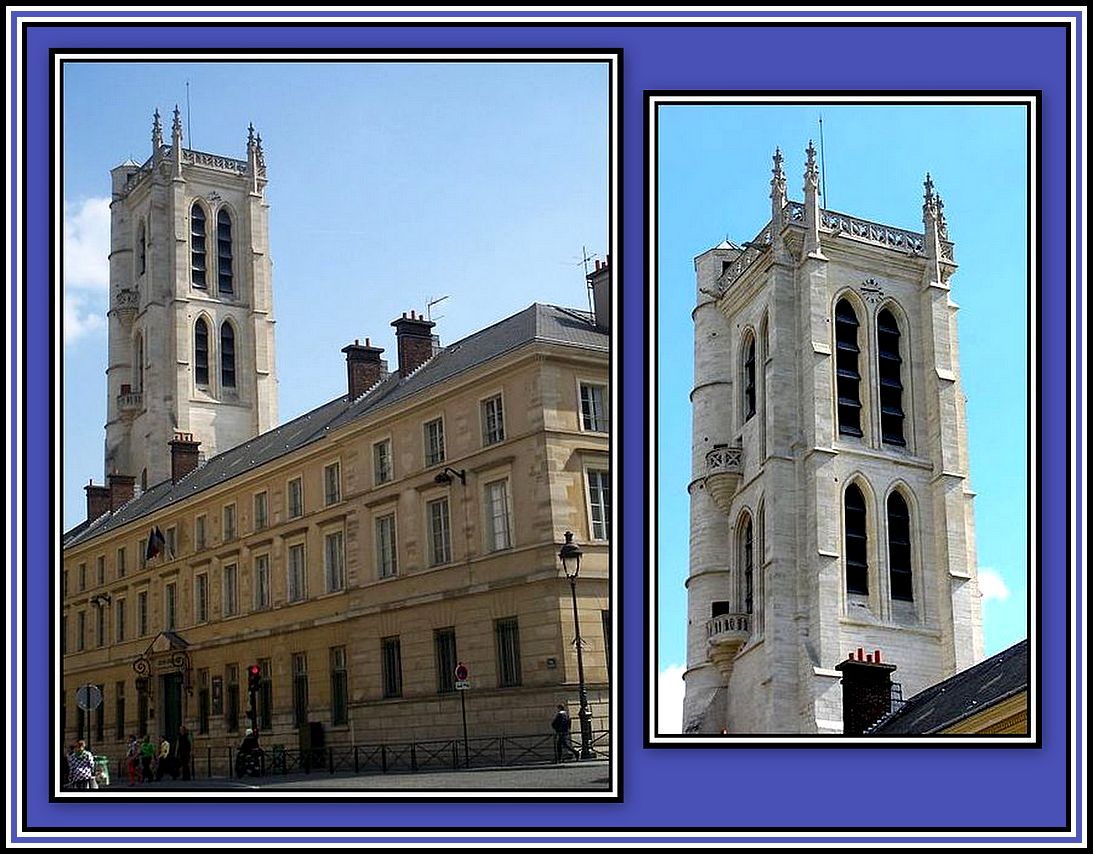 Tour Clovis et Le Lycée Henri IV, à Paris (Left: Cdelagarde; Right: Kajimoto)
Tour Clovis et Le Lycée Henri IV, à Paris (Left: Cdelagarde; Right: Kajimoto)
The alumni of the Lycée include: Léon Blum, Prime Minister of France (Front populaire party); Valentin Feldman, philosopher and member of the French resistance; André Gide, author; Georges-Eugène Haussmann, Baron, préfet, and city planner including the City of Paris; Guy de Maupassant, author; Prosper Mérimée, author of Carmen; Éric Rohmer, New Wave (Nouvelle Vague) director, writer and actor; and Jean-Paul Sartre, philosopher; Georges Pompidou, former President of the Republic of France, was once a teacher at the Lycée.
-oOo-
By the age of 20, Brunel began his work as an assistant engineer on the building of the Thames Tunnel (1825-1843)* between Rotherhithe and Wapping where his father, the French Civil Engineer, Sir Marc Isambard Brunel (1769-1849), was Chief Engineer. This project proved both difficult and dangerous and resulted in his suffering a serious injury in 1828, which required six months of recuperation. Following this, he had no further involvement in the project.
This photograph is in the Public Domain and was taken by Mr. Robert Howlett (1831–1858)
-oOo-
* The Thames Tunnel was the first tunnel to be constructed successfully beneath a navigable river. It had originally been designed for, but never used by, horse-drawn carriages. It was used by pedestrians who upon paying one old penny were able to walk through it. In 1865, The Tunnel was purchased by the East London Railway Company and eventually became part of the London Underground system, as part of the East London Line, and today is now part of London Overground.
These pictures are by Urban 75 – awaiting permission to reproduce them here.
——oooOOOooo——
Click on each of the following links to read more of
Mr. Brunel’s remarkable achievements
HOME PAGE
-oOo-
PAGE TWO: THE GREAT WEST RAILWAY
-oOo-
PAGE THREE: THE BRUNEL STEAMSHIPS
-oOo-
PAGE FOUR: THE BRUNEL BRIDGES
-oOo-
PAGE FIVE: THE BRUNEL MEMORIAL
——oooOOOooo——
Readers can TWEET their LIKES & DISLIKES to me at
or
make comments on the Website’s FACEBOOK PAGE
or
consider leaving a Comment below.
——oooOOOooo——
ACKNOWLEDGEMENTS
I would like to thank Mr. Paul Bland for allowing his photographs to appear here.
I would also like to thank Ms Annie Barnes for her help and consideration and for allowing some of her photographs to appear here.
Finally, I would like to thank Mr. Dominic Rowe of the SS Great Britain Trust for his help and consideration and for allowing some of the Trust’s photographs (credited to Mr. David Noton) to appear here.
——oooOOOooo——
Click here to GO to A SERIES OF WALKS ALONG THE EMBANKMENT Home Page
——oooOOOooo——
Click here to go to PART FOUR: VICTORIA EMBANKMENT GARDENS
——oooOOOooo——
Click here to RETURN to the TABLE OF CONTENTS
——oooOOOooo——

